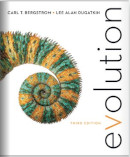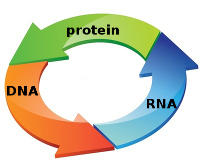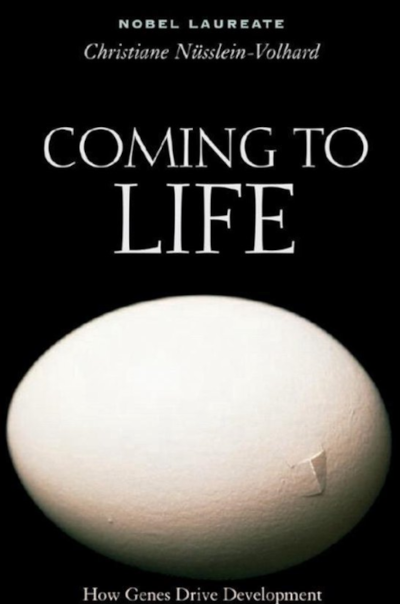"The aim of this book is to show why these metaphors are inadequate, why
they need replacing, and why we will not understand how life works until we
do. It also attempts to sketch out what might be put in their place."
(Prologue, How Life Works, Philip Ball, 2024).
To explain 'How life works' is an extremely ambitious venture with a 2000 year history. But first: what are these metaphors? For example this one: DNA is 'the secret of life'. The Human Genome is said to be 'our own instruction book' and 'The Book of Life'. But according to Ball this is like looking into a dictionary to understand literature. My impression is that Ball is throwing 'the dictionary' (DNA, the genome) out the window. But we haven't even finished completing the dictionary, we don't know how many words there are and how the words are used.
My problem with Ball is that he overreacts in such an extreme degree that he tries to doubt the importance of the discovery of the structure of DNA by Watson and Crick in 1953 (see my previous blog). Tellingly, Ball relegates the 1962 Nobel Prize for DNA to a footnote. I can't say it better than Bergstrom and Dugatkin in their most recent Evolution textbook:

|
|
Bergstrom,Dugatkin (2023) |
"For the better part of the past 4 billion years, desoxyribonucleic acid -DNA- has been the chemical underpinning of life on Earth. At a very basic level, it is changes in DNA sequences and DNA expression that underlie the process of biological evolution by driving changes in phenotype and causing differences in fitness."
After a description of the Watson-Crick structure of DNA they continue:
"Pause for a moment and consider what is encapsulated into those last six sentences: It is a triumph of modern biology that we are capable of describing the stuff of life in such succinct terms." [2]
Furthermore, we have good reasons to claim that DNA is the only molecule capable of
sustaining life and giving rise to millions of species. There are no known
rivals. There is no alternative. It would be a huge error to dismiss DNA to
explain life on earth.
Ball is not the first scientist to claim that DNA is not 'the secret of
life'. Nearly 30 years ago Stuart Kauffman wrote:
"Life does not depend on the magic of Watson-Crick base pairing or any other specific template-replicating machinery." [3]
Nick Lane (2022) wrote: "genes did not 'invent' metabolism, but the reverse." [4], others have similar views [6].
One can't discuss biology and evolutionary biology if one doesn't get DNA right. Philip Ball downgrades DNA to an extreme degree. But both emphasizing and de-emphasizing DNA too much is a bad thing. Emphasizing DNA too much only occurs with claims like "DNA is the blueprint of life" [5] and "DNA copies itself", "DNA self-replication", "Gene self-replication". Let's have a closer look.
Biologists know that these statements are only true in the cellular
environment. Just as viruses can't self-replicate, 'our' DNA can't
'self-replicate'. DNA needs enzymes (polymerases) to replicate. Viruses need enzymes to replicate. This view creates a unity between viruses and 'our own' DNA. There is only a gradual difference in usefulness for the host (some claim that there are useful viruses).
No biologist
ever said DNA is alive. It is a big but dead polymer. It's an archive, a library. Biologists know that DNA
on its own is not sufficient to explain life. The reason is that life
consists of three interconnected subsystems: a hereditary system (DNA,RNA),
an energy producing subsystem (metabolism) and a boundary system
(membrane):

|
|
The 3 parts of life according to
Tibor Gánti [1] 1. chemical motor system = metabolism 2. chemical boundary system = cell membrane 3. chemical information system = heredity, DNA |
It is immediately clear from this diagram that by definition only
the total system can be called alive. DNA is a subsystem. So, it follows
from the logic of this definition of life that DNA isn't alive. Furthermore,
I didn't realize until now that our
own DNA depends just as much as viruses on the cellular environment to do anything at all. I didn't see it
in that way before. Viruses aren't alive. DNA isn't alive. Interestingly, it
follows also that 'our' DNA is a kind of 'parasite' of the cell. The
cell, our cells are its hosts. So, not just DNA sequences such as
transposons are parasitic. Paradoxically, the whole genome is a 'parasite'. A parasite requires a host. We are the host. Did I just rediscover Dawkins'
selfish gene concept? By the way, the 'parasitic'
nature of DNA is also the reason it can't be involved in the origin of life.
In that sense DNA can't be the start of life.

|
|
vicious circle |
In the cellular environment DNA is not 'the start of everything', despite the fact that
according to Crick's famous 'Central Dogma' information flows from DNA to protein. That may be confusing for some. DNA
is not the start of everything in the cell. A circle has no starting point. Proteins are always required In the processes of DNA-replication, DNA transcription, mRNA splicing and
translation. Those proteins must be present and have been synthesized
earlier on. Indeed they have been synthesized on the basis of information in
DNA. And in order to read that information enzymes have to be
present...etc. That's the circle.
Strictly speaking genes do not 'control' development, because that suggests an active involvement of genes. Genes do not express themselves, they are being expressed. I agree with Ball's criticism that genes are not actively doing anything [6]. That's a gain.
However, Ball's main point is that in order to understand 'how life works' one
must understand the biochemical and physical forces involved in the cell and
the organism. In the chapters Networks, Cells, Tissue, Bodies, Rethinking medicine, dozens of
genes pop up again and again:
Src, Int1, TNF, bicoid, caudal, even-skipped, Hunchback, Giant, Kruppel, Dkk2, Dkk4, FGF, Sonic hedgehog, HoxD13, FGFR3, EDAR, Hsp90, Notch, Otx, Hex, Wnt, Nodal, E-cadherin, SHH, Shroom, myosin II, NF1, NF2, chordin, BMP, TGF-β, Gata1, Gata2, GPU.1, Sinr, SinI, Oct4, Sox2, c-Myc, Klf4, FBn1, CFTR, TSLP, CTLA4, IL6R, HBB, SRY, Sox9, SF1, APP, BRCA1, BRCA2, p53, ZIC4, ...
Conclusion:
- If you can't tell a DNA-free, gene-free story, then don't pretend you can.
- If you do tell a DNA-free, gene-free story, then what is its relevance to biology?
-
If you need genes to tell your story, give them a proper place in your
story.
For example Ball writes in chapter 8:
"The discovery of 'patterning genes' for the early body plan transformed our understanding of how genes affect development, and won Nüsslein-Volhard and Wieschaus the 1995 Nobel Prize for physiology or medicine".

|
|
Christiane Nüsslein-Volhard (2006) Coming to Life How Genes Drive Development |
Indeed! There you have it. According to the Nobel Prize website they "succeeded in identifying and classifying the 15 genes that direct the cells to form a new fly." [7]. So, 1) it's all about genes, 2) if genes are the words of the dictionary, then they discovered the meaning of those words. Those 'blueprint-geneticists' discovered which genes are used in the early embryonic development, and when and where they are used. They discovered not only isolated words, but the context in which they are used. They are making significant progress in understanding important sentences of the 'language of life' (Francis Collins: 'the language of God'). It is part of 'how life works'. This research is opening the black box of development (see Fig. 2.1 in Ball's book).
Anyway, there are no gradients without gene products. Alan Turing invoked hypothetical morphogens and gradients. Those 'blueprint-geneticists' proved that morphogens do exist. Just as those 'blueprint-geneticists' have proven that Mendels hypothetical factors do exist. That is science. That is progress.
There is a lot more to say. But this is enough for today. I invited a physicist to comment on the physical aspects of How Life Works.
Postscript: a contradiction
2 March
I discovered a few sentences in chapter 9 which seem to nullify everything Ball wrote in chapter 2 against the importance of DNA:
"we each have within us a deep evolutionary memory embodied in our genomes. If these are not blueprints, they nevertheless do encode information shaped and inherited over eons that is indispensable to our formation." chapter 9. 17/123
Well, in essence this is identical to my quote from Bergstrom-Dugatkin. ('eons' is in fact 3.5 billion years). Here, Ball describes the indispensability of DNA! Does it matter whether DNA is called a 'blueprint' or 'indispensable information'? What's the difference? He continues:
"To what extent life is dictated by this Darwinian memory and to what extent it can draw on spontaneous ordering mechanisms is one of the central questions for understanding how it works."Indeed, that seems to be the central question of the book How Life Works. It's all about the relative importance of DNA and spontaneous order. Both are indispensable. Then, why write a whole book to downplay DNA? Maybe, the consensus view in biology is that DNA is the most important cause of the creation of an organism?
Notes
-
Tibor Gánti (2003) The Principles of Life. See:
my review. Ball points out that a living entity must have a boundary of some kind (Ch 9. 83/123)
- Bergstrom, Dugatkin (2023) Evolution, p 189. (textbook) see my website.
- Stuart Kauffman (1995) 'At Home in the Universe. The Search for Laws of Self-Organization and Complexity' (my review). Ball doesn't mention Kauffman's book.
- Nick Lane (2022) Transformer: The Deep Chemistry of Life and Death.
- No biologist uses 'Blueprint of life' literally. That's impossible: DNA is a linear sequence. A cell is 3-dimensional object. In a review of How Life Works Denis Noble wrote "It’s time to admit that genes are not the blueprint for life" (Nature). Fine, what are genes really?
- Ball quotes Richard Lewontin (1992): "Not only is DNA incapable of making copies of itself, but it is incapable of 'making' anything else." (end of Chapter 2) [1 March 2024]
- "15 genes that direct the cells to form a new fly". Is 'direct' a correct description of what happens in the organism?
Blogs about How Life Works
-
A review of Philip Ball (2024) How Life Works. With Postscript 29 Feb 2024
- The Secret of Life according to Philip Ball, 19 Feb 2024
- What's wrong with a DNA-centric view? Philip Ball (2024) How Life works, 12 Feb 2024.
Reviews by others
- Adam Rutherford: How Life Works by Philip Ball review – the magic of biology. The Guardian, 11 Jan 2024.











